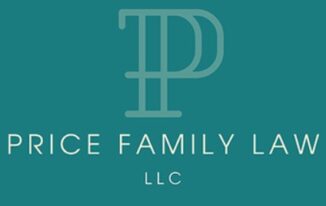Filing for bankruptcy isn’t something most people want to do, but if you’re drowning in debt and out of options, it can be a lifeline. While it’s often seen as a last resort, there’s more to bankruptcy than just wiping the slate clean. In fact, it can offer several unspoken benefits that can help you regain control of your life and finances.

If you’re struggling with the decision, here are five “bright sides” to consider when filing for bankruptcy.
- Immediate Relief From Debt Collectors
One of the immediate and most noticeable benefits of filing for bankruptcy is something known as the automatic stay. The moment you file, this legal provision kicks in, halting all collection efforts against you. No more harassing phone calls, threatening letters, or lawsuits from creditors.
This relief can be life-changing, especially if debt collectors have been bombarding you day and night. It gives you the breathing room you need to focus on your financial recovery without constant pressure or intimidation.
The automatic stay doesn’t just stop phone calls – it can also temporarily prevent foreclosures, repossessions, and wage garnishments. While these actions may resume under certain conditions, bankruptcy gives you time to regroup and explore solutions.
- Emotional Relief
Debt doesn’t just affect your bank account – it takes a toll on your mental and emotional well-being. The stress of unpaid bills, overdue notices, and collection efforts can lead to anxiety, sleepless nights, and even health problems.
Filing for bankruptcy provides a sense of closure. It’s a chance to confront your financial issues head-on and take control of your situation. If you’re like most people, knowing there’s a structured process in place to address your debt can bring a huge sense of relief and help you focus on rebuilding your life.
For many people, just having a clear plan for the future is enough to restore hope. Bankruptcy may not solve everything, but it marks the beginning of a fresh chapter (which happens to be the next benefit we’re going to discuss).
- A Fresh Start for Your Finances
Bankruptcy is often described as a fresh start, and for good reason. Whether you file for Chapter 7 or Chapter 13, the process allows you to address overwhelming debt and begin rebuilding your financial foundation.
- Chapter 7 Bankruptcy: This wipes out most unsecured debts, like credit cards and medical bills, giving you a clean slate. While you may need to liquidate some assets, many essential items are protected under exemption laws.
- Chapter 13 Bankruptcy: This restructures your debt into a manageable repayment plan, typically lasting three to five years. It’s an excellent option if you have a steady income and want to keep your assets.
Regardless of the chapter you choose, bankruptcy clears the way for you to focus on financial recovery. It allows you to shift your energy from scrambling to make payments to creating a sustainable financial plan for the future.
- Improved Credit (Over Time)
It might seem counterintuitive, but filing for bankruptcy can actually be the first step toward improving your credit score. While your score will likely take an initial hit, the damage may not be as severe as you think – especially if your credit was already poor due to missed payments and high balances.
Once your bankruptcy is discharged, your debt-to-income ratio improves, and you no longer have delinquent accounts dragging down your score. With no overwhelming debt, you can start fresh by making on-time payments and building good financial habits.
“In most cases, you will be able to obtain a mortgage or other loan within a few years of completing bankruptcy,” Reed Law explains.
Many people find that their credit begins to improve within a year or two of filing. Lenders are often willing to work with you post-bankruptcy because you’ve addressed your debt and can’t file again for several years.
- A Chance to Learn and Grow Financially
While filing for bankruptcy can be humbling, it’s also an opportunity for growth. It forces you to take a hard look at your finances, identify what went wrong, and develop better money management skills moving forward.
Bankruptcy often includes financial counseling, which can be incredibly valuable. These sessions provide tools and strategies to help you budget, save, and avoid the pitfalls that led to your financial difficulties in the first place.
You’ll also gain a better understanding of how to prioritize expenses, build an emergency fund, and work toward long-term goals – the things that could have likely prevented debt from becoming an issue in the first place. The lessons you learn during the bankruptcy process can set you up for financial success for years to come.
Is Bankruptcy the Right Choice?
Filing for bankruptcy isn’t easy, and it’s not a decision to take lightly. But every choice in life is difficult. Being overweight is hard and being healthy is hard. Being rich is hard and being poor is hard. Being tall is hard and being short is hard. You have to choose your hard.
Remember that bankruptcy exists to give people a second chance. It’s a legal tool designed to help you escape unmanageable debt and rebuild your life. If you want to live a life free of debt, it starts with regaining control over your current situation. Bankruptcy could help.



